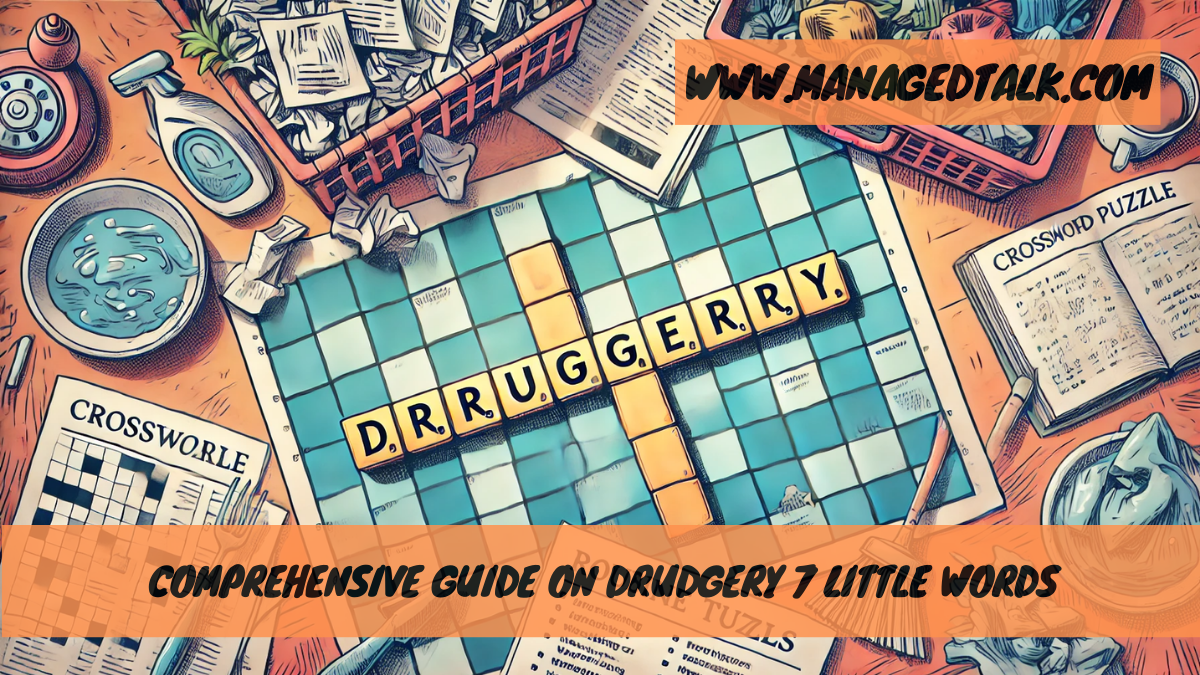Introduction to “Drudgery 7 Little Words”
Puzzles and word games have always been a source of mental stimulation, offering an escape from everyday life. One of the most popular games, 7 Little Words, challenges players with cleverly crafted clues, including terms like “drudgery.”
“Drudgery 7 Little Words” is a clue that challenges players to identify terms linked with monotonous work, reflecting routine and mundane tasks often overlooked yet impactful in daily life.
In this article, we will dissect the significance of the clue “drudgery 7 little words,” understand its implications in the game, its broader meaning in life, and how engaging with such clues benefits the mind.
What Is “Drudgery”?
The word “drudgery” refers to tedious, monotonous, and laborious work that feels devoid of interest. Derived from the Old English term drudge, which means ‘to work hard,’ drudgery is synonymous with everyday tasks that are repetitive and uninspiring.
Examples of Drudgery in Daily Life:
- Household Chores: Washing dishes, doing laundry, and cleaning.
- Workplace Tasks: Filing paperwork, data entry, and attending repetitive meetings.
- Academic Work: Writing reports, studying repetitive subjects, and preparing for exams.
“Drudgery” in the Context of 7 Little Words
7 Little Words is an engaging game where players decipher clues to form words or phrases. The clue “drudgery” can lead to words synonymous with dull tasks, such as “toil,” “grind,” or “routine.”
Why Is It Used in Puzzles?
The term “drudgery” poses a challenge because it reflects not only a direct word but also hints at related phrases that encapsulate the essence of monotonous work. Puzzlers need to think creatively to find words that fit both the clue and the puzzle’s grid.
How to Approach Clues Like “Drudgery 7 Little Words”
To tackle clues such as “drudgery” in 7 Little Words, consider the following strategies:
- Identify Synonyms: Words like “labor,” “toil,” or “slog” might be potential answers.
- Contextual Clues: Think of the puzzle’s theme. If it’s related to work or daily life, adjust your guesses accordingly.
- Length of the Word: Ensure your answer matches the number of letters needed.
The Psychological Impact of Drudgery
Drudgery, while seemingly negative, plays a significant role in understanding human resilience and productivity. While monotonous tasks can be draining, they also:
- Enhance Discipline: Repetitive tasks instill a sense of responsibility.
- Foster Creativity: Mundane work often triggers imaginative thoughts as a mental escape.
- Develop Problem-Solving Skills: Games like 7 Little Words that include clues about drudgery push players to think divergently.
The Positive Side of Embracing Drudgery
Despite its connotation, finding fulfillment in mundane work has benefits:
- Mindfulness: Engaging fully in repetitive tasks can foster mindfulness.
- Skill Development: Repeated work helps master skills over time.
- Sense of Accomplishment: Completing drudgery can provide a satisfying sense of productivity.
Why Is “Drudgery 7 Little Words” Popular Among Puzzlers?
Clues like “drudgery 7 little words” resonate with players because they reflect relatable experiences. While many play games to unwind, clues that touch on universal feelings of fatigue and effort resonate deeply. This makes the solution all the more satisfying when found.
Tips for Solving Tough Clues in 7 Little Words
- Break It Down: Focus on smaller segments of the puzzle.
- Use Process of Elimination: Discard words that don’t fit with surrounding answers.
- Research Synonyms: Look up alternative terms that might align with the clue.
Related Terms to “Drudgery 7 Little Words”
Optimizing for search engines requires a focus on related keywords. Below are some associated terms:
- Monotonous Work
- Repetitive Tasks
- 7 Little Words Puzzle Clues
- Laborious Jobs
- Word Game Solutions
The Role of Word Games in Mental Health
Playing games like 7 Little Words with clues about drudgery offers cognitive benefits:
- Boosts Problem-Solving Abilities: Encourages lateral thinking.
- Improves Vocabulary: Helps players learn new terms.
- Reduces Stress: Engaging with word games can be a relaxing activity.
FAQs About “Drudgery 7 Little Words”
Q1: What is the typical answer for “drudgery” in 7 Little Words?
A1: Answers can vary, but common ones include “toil,” “labor,” and “grind.”
Q2: Why is “drudgery” used as a clue?
A2: It challenges players to think of words related to dull, repetitive work, enhancing mental flexibility.
Q3: How do I solve difficult clues like “drudgery”?
A3: Use synonyms and pay attention to the number of letters required by the game.
Q4: What does drudgery mean in real life?
A4: It refers to tasks that are repetitive, monotonous, and lacking in excitement, such as daily chores.
Q5: Are there benefits to solving drudgery-related puzzles?
A5: Yes, they improve problem-solving skills, vocabulary, and mental sharpness.
Conclusion
Understanding the essence of “drudgery 7 little words” adds depth not only to your puzzle-solving skills but also to appreciating the concept of drudgery in everyday life. Whether tackling word games or handling daily tasks, finding meaning and motivation in mundane work can transform how we approach challenges.
